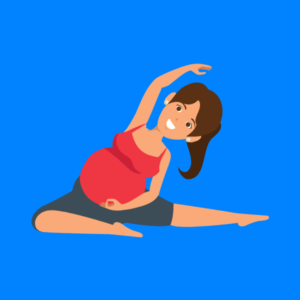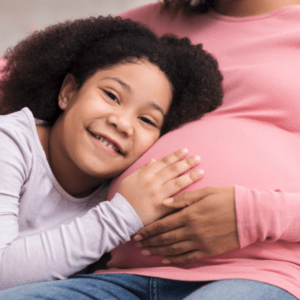Now your mini-you is on the way, it’s very important to eat healthy so as to help your baby grow and develop properly. You need to make sure you eat a varied portion of foods to get the right balance of calories and nutrients.
There is also no need to eat for two until the 3rd trimester where your calorie intake should increase by about 200.
So what should you eat during pregnancy?
- Fruits and Vegetables: A very obvious one. Try to eat at least 5 portions of a variety of fruit and vegetables every day – these can include fresh, frozen, canned, dried or juiced(of course, fresh is best if possible). The more you are able to do this, the more your intake of minerals and vitamins as well as fibre.
- Carbohydrates: an important source of energy and fibre and choose wholegrain options where possible. Examples are bread, potatoes, rice, pasta, noodles, oats, millet.
- Protein: Chicken, meat, fish, eggs, beans, nuts are also good sources of protein and can provide iron to the body. Do not have more than two portions of oily fish a week as it can contain toxins. Also eating raw/partially cooked eggs is a no-no.
- Dairy: Selected cheese or yoghurts, milk are important as they are good for calcium, but go for low fat variety options.
- Healthy snacks : carrots, cucumber, fresh fruit, small sandwiches, baked beans, bananas, smoothies (also a great way to get a good blend of vitamins and minerals)
Then the foods to avoid:
- Some types of cheese: mould ripened cheese, soft blue cheese
- unpasteurised milk: from goats and cows and any foods made from unpasteurised milk. They can lead to an infection called listeriosis.
- raw or undercooked meats as there is a risk of getting toxoplasmosis.
- Liver and liver products have lots of vitamin A in them. This can be harmful to an unborn baby
- Raw/partially under cooked eggs as it could cause food poisoning.
- Oily fish can contain pollutants and raw shellfish can have bacteria which can cause food poisoning.
- Limit your caffeine to no more than 200mg a day as too much it is linked to low birth weights and risk of miscarriage.
- Try to totally avoid alcohol when pregnant, and if you must, take 1-2 units a week after the first trimester.
- Stop smoking totally!!!
Exercise
The more active you are during pregnancy, the easier it will be for you to cope with labour and get back into shape after birth.
If you exercised before you became pregnant, you can continue doing the same exercise now, just don’t take part in strenuous exercise. The aim should be to keep your current level of fitness rather than trying to reach peak fitness.
Exercises that are safe during pregnancy include walking, swimming, stationary cycling, Pilates, running, strength exercises, yoga. pelvic floor exercises-Doing pelvic floor exercises regularly will help prevent you accidentally leaking wee when you cough or strain, both during your pregnancy and after your baby is born.
Be careful and not exercise for more than 45 minutes at a time. Don’t do exercises in which you lie flat on your back after 16 weeks. Avoid pushing yourself too hard as this can make you overheat, which is not good for your baby
If you have any unusual symptoms, stop exercising and contact your doctor or midwife immediately.
Now is not the time to go on a special diet, as you and your baby could miss out on essential nutrients. Ensure you eat a varied portion of carbohydrates, protein, fruits and vegetables and fibre.



